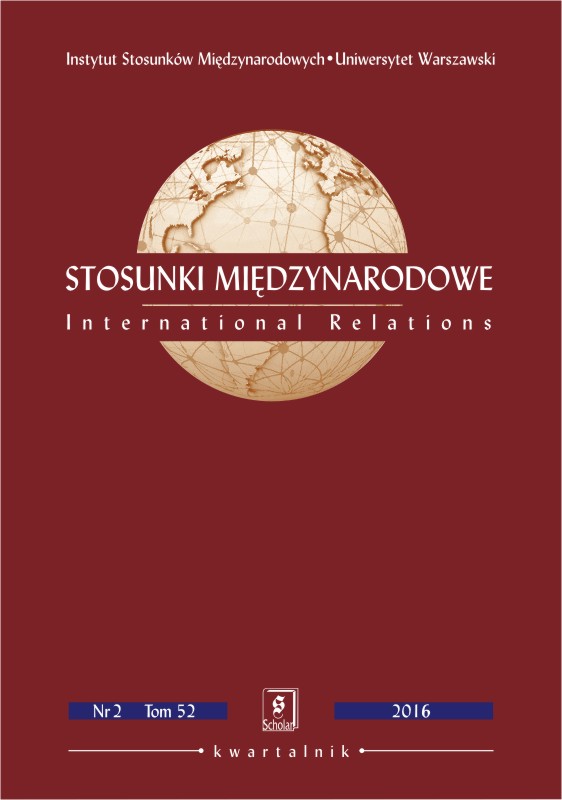The Promises and Pitfalls of Realist Explanations of Power Politics in Europe
THE PROMISES AND PITFALLS OF REALIST EXPLANATIONS OF POWER POLITICS IN EUROPE
Author(s): Knud Erik JorgensenSubject(s): Politics / Political Sciences, Politics, Political Theory, Political Sciences, International relations/trade
Published by: Wydawnictwo Naukowe Scholar Sp. z o.o.
Keywords: realism; Europe; power politics
Summary/Abstract: This article critically examines the promises and pitfalls of realist explanations ofpower politics in Europe. Starting with the pitfalls and drawing on a previous paperabout the end of the realist tradition in Europe, Jørgensen argues that realism isa theoretical tradition (among several others) and that as such realism’s utility asan explanatory tool is close to zero. By contrast, realist theories might have someutility in explaining power politics, not least in applications of balance of powertheory, balance of threat theory, theories of alliance politics, power transitiontheory or theories of foreign policy. Subsequently, the explanandum, ‘powerpolitics’, is characterised as an attractive yet slippery concept that is in severeneed of specification. Moreover, the article points out the obvious, specifically thatthe region in question – Europe – is part of the world and that, when explainingpower politics in Europe, several (neo-)realist approaches would highlight theimportance of systemic structural factors. Concerning the promises of realistexplanations, it seems useful to examine the conditions under which the utility ofrealism in explaining power politics in Europe would increase: i) further gains ofthe European right and far right; ii) further advances of revisionist Russia; iii) theEU disintegrating, cf. challenges to the euro, Schengen, and exit strategies suchas Grexit and Brexit; iv) intra-realist tradition developments include a thoroughreconsideration of the realist research agenda, for instance: by means of entering theexperience of problem-oriented eclectic approaches, specifically giving up claimsabout realist supremacy, forgetting the bold claim that only realist theories describethe world as it is, specifying when or where realist theory is relevant and where itis not. The article has three recommendations: realists should give up Europe asa region in which realist approaches are relevant (with a few notable exceptions);instead realists could choose global power shifts or regional balances of power inthe Far East or the Middle East. The engagement of the US/Russia/Iran/Turkey/Saudi Arabia in the Middle East could be seen as a soft case for realist analysts.
Journal: Stosunki Międzynarodowe
- Issue Year: 52/2016
- Issue No: 2
- Page Range: 91-104
- Page Count: 13
- Language: English

